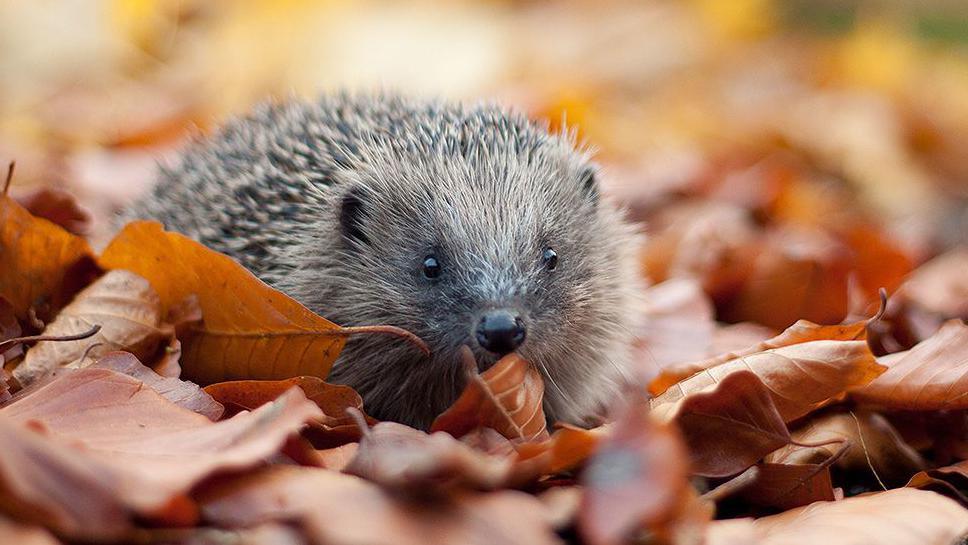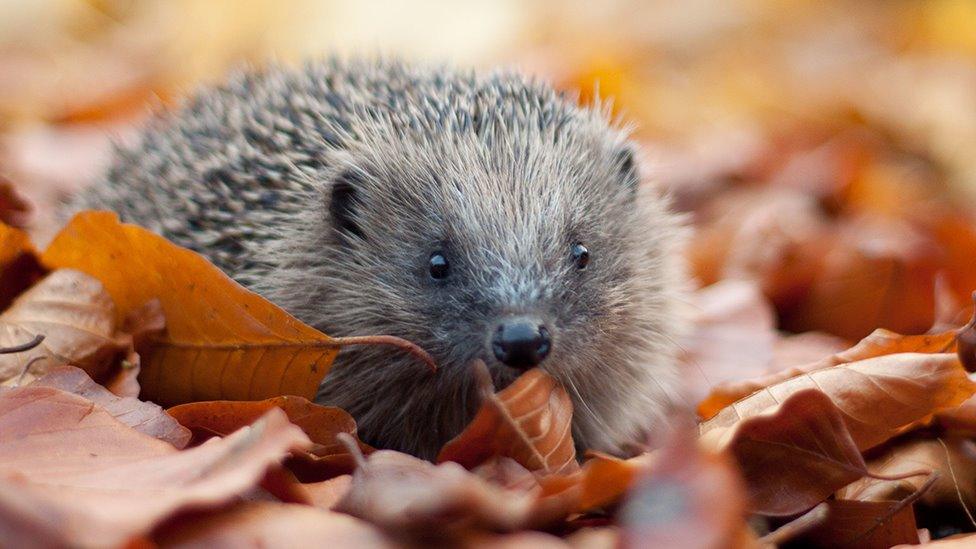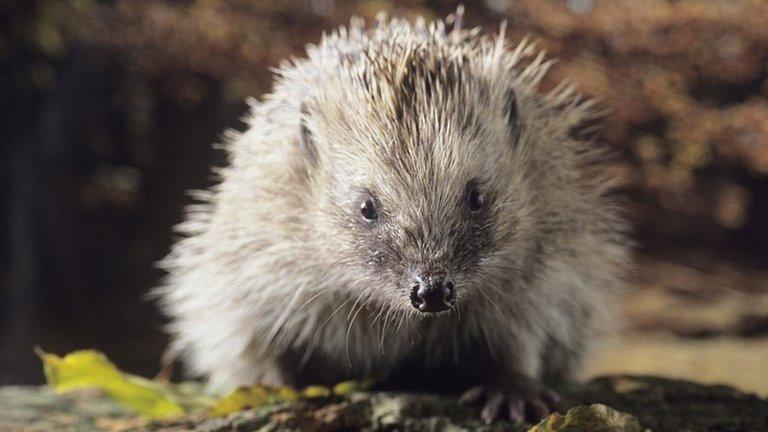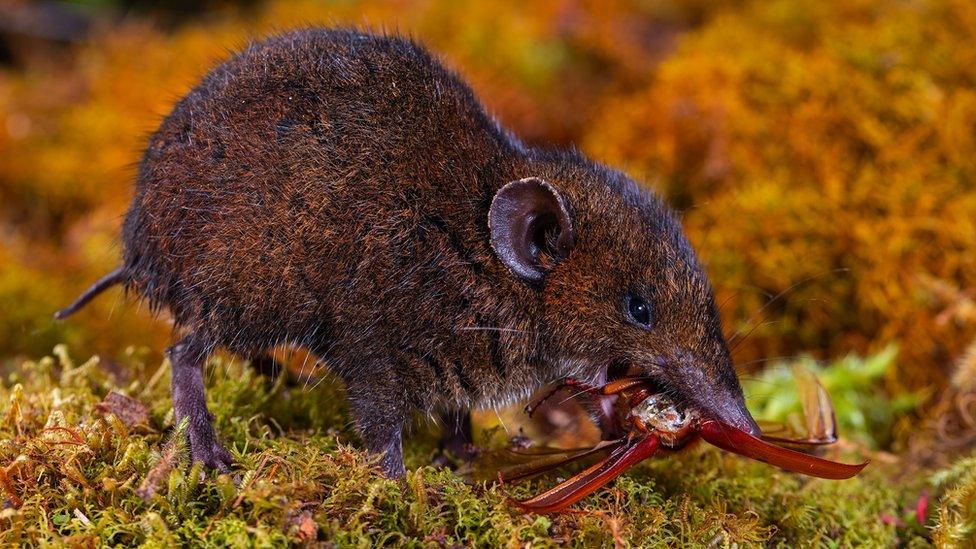Call to help hedgehogs after population plummets

Lancashire Wildlife Trust said there had been a "massive" decline in the number of hedgehogs in the county
- Published
A council has committed to measures that it has said will help hedgehogs thrive.
They are officially classed as vulnerable to extinction in the UK and were added to the "red list" of Britain's under-threat mammals in 2020.
South Ribble Council said the Hedgehog Action Plan was about giving them "room to roam" to reduce the number of them killed on the roads.
Ideas included building ramps on ditches and ponds and leaving gaps in hedges and fences.
'Creating the right habitat'
Councillor Kath Unsworth said: "We thought it was necessary because hedgehogs are in decline and they are an indicator of how well a habitat is doing.
"If the hedgehogs are fine, then the rest of things seem to be ok as well.
"They can go up to about two miles during the night to look for food, so they need that space to find the food they need."
Ms Unsworth said the council was doing their part.
"We're looking at not using pesticides, making sure our fences and hedges have got gaps in and making sure that any water has got ramps so they can get out if they fall in," she said.
Lancashire Wildlife Trust conducts its own hedgehog survey every year and the findings have shown sightings of them in the county has dropped by 33%.
Alan Wright from the trust said there had been a "massive" decline in their number.
He said: "We had about five million of them in the UK fifty years ago and now we are down to less than a million, so they've really suffered.
"It's all about creating the right habitat," he said. "We haven't done that enough in the last hundred years. We've got rid of hedgerows, and hedgerows are massively important, but the good news is that farmers are now creating new ones.
"People are also looking out for them in the garden and making spaces for them," he added.
"If there's a route for them between a number of safe gardens to feed, then that's a fantastic thing."
Listen to the best of BBC Radio Lancashire on Sounds and follow BBC Lancashire on Facebook, external, X, external and Instagram, external. You can also send story ideas to northwest.newsonline@bbc.co.uk, external
Related topics
- Published14 September 2023

- Published26 January 2021

- Published22 December 2023
